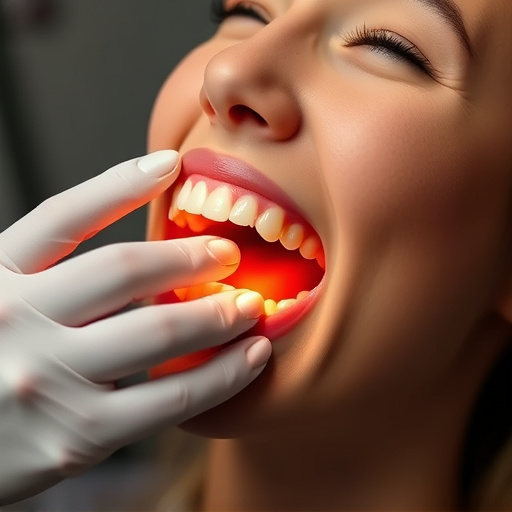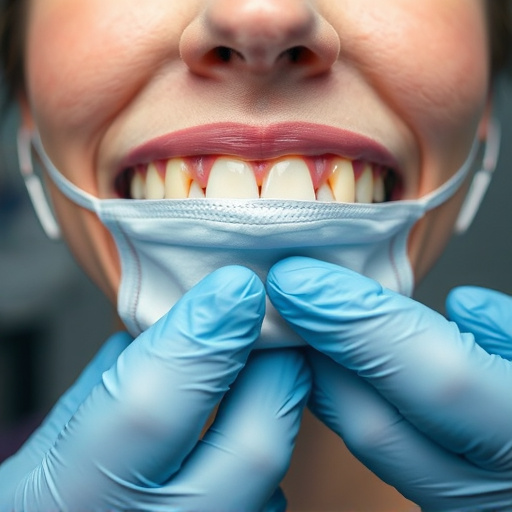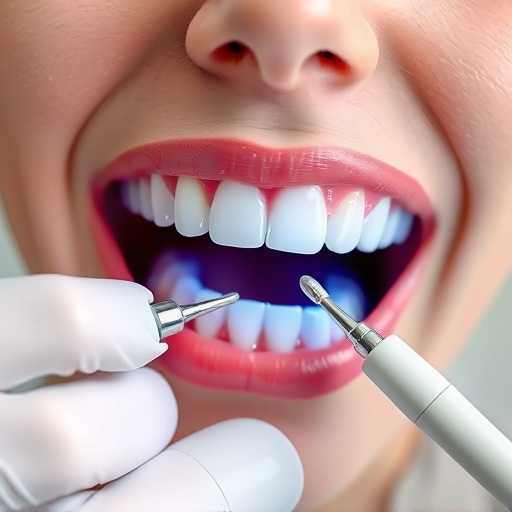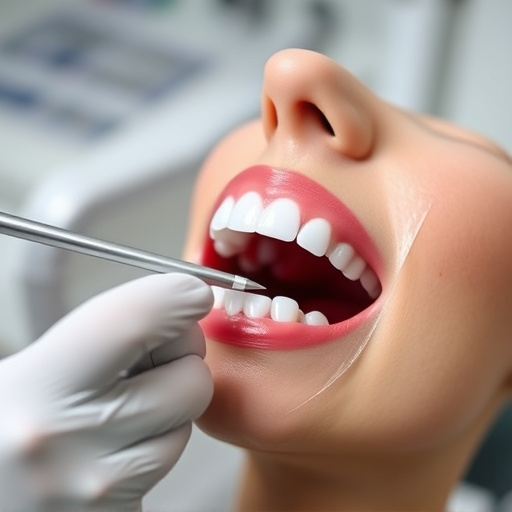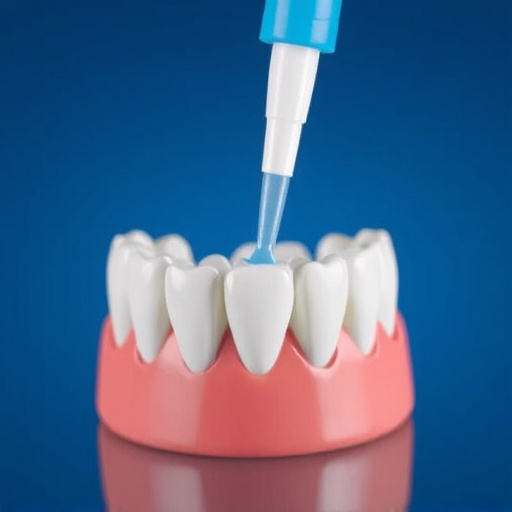Tooth decay, caused by bacterial breakdown of sugar, leads to enamel erosion and cavities. Regular cleaning and oral care are key preventatives. Dental sealants, thin protective coatings applied to molars, guard against decay by sealing out bacteria and food particles, reducing cavity risk and minimizing future restorative procedures like dental implants.
Dental sealants for teeth are an effective preventive measure against tooth decay, offering substantial protection to both children and adults. This article delves into the science behind tooth decay, exploring its causes and impact on oral health. We then highlight how dental sealants create a formidable defense, sealing out bacteria and food particles from the tiny nooks and crannies of teeth. By understanding these mechanisms, you’ll grasp why sealants are an essential tool in maintaining a healthy smile.
- Understanding Tooth Decay: Causes and Impact
- The Role of Dental Sealants in Protection
- How Sealants Create a Strong Defense Against Cavities
Understanding Tooth Decay: Causes and Impact

Tooth decay is a common dental issue that can have significant consequences if left untreated. It occurs when bacteria in the mouth break down foods and drinks, particularly those high in sugar and carbohydrates, producing acids that erode the tooth enamel. Over time, this process weakens the teeth, leading to cavities, cracks, and even tooth loss. The impact extends beyond physical health; it can cause pain, affect eating and speaking abilities, and lead to low self-esteem due to cosmetic concerns.
Understanding the causes of tooth decay is crucial when considering preventive measures like dental sealants for teeth. Regular oral hygiene practices, such as brushing and flossing, along with routine teeth cleaning sessions, are essential to removing plaque buildup. However, certain factors like poor dietary choices, dry mouth, or genetic predispositions can increase susceptibility to decay. Cosmetic dentistry procedures like dental crowns may be required in severe cases to restore damaged teeth, but preventative measures like sealants offer a more proactive approach to maintaining oral health.
The Role of Dental Sealants in Protection

Dental sealants for teeth play a pivotal role in protecting them from decay and other harmful oral conditions. These thin, protective coatings are applied to the chewing surfaces of back teeth (molars) to prevent tooth decay. By sealing out bacteria and food particles, they create a barrier that keeps plaque from building up and causing cavities. This is especially beneficial for children, as their permanent molars erupt around age 6 and continue to come in through adolescence—a period when proper oral hygiene practices may not be fully established.
Sealants act as a shield, covering the tiny crevices and pits on our teeth where bacteria can hide and start the decay process. Unlike dental crowns, which are used to restore severely damaged or decaying teeth, sealants offer a proactive approach to oral care. They’re an excellent option for families seeking preventive dentistry solutions. By applying these protective layers, family dentistry professionals can significantly reduce the risk of cavities, leading to healthier smiles and fewer trips to the dentist for restorative procedures like dental implants in the long run.
How Sealants Create a Strong Defense Against Cavities

Dental sealants for teeth act as a strong defense against cavities by creating a protective barrier on the surface of molars and premolars. These thin, durable coatings are applied to the chewing surfaces of back teeth, where food debris and bacteria tend to accumulate. By sealing off these areas, sealants prevent plaque and acids from penetrating the tiny pits and grooves of the tooth enamel, which is where decay often begins.
This simple yet effective procedure offers a powerful line of defense in comprehensive dental care routines. Unlike fillings that focus on repairing damaged teeth, sealants proactively protect healthy teeth from decay. Regular teeth cleaning practices, combined with the protective layer of dental sealants, help maintain optimal oral health and reduce the risk of tooth repair needs down the line.
Dental sealants for teeth have proven to be an effective defense against tooth decay, filling the tiny gaps and pits on molars where bacteria can hide. By creating a protective barrier, these sealants significantly reduce the risk of cavities and help maintain overall oral health. Incorporating dental sealants into regular dental care routines is a proactive step towards preventing decay and preserving a healthy smile for years to come.



